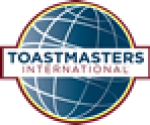The success of Toastmasters is based largely on how much its members learn and grow. As such, a club’s vice president education (VPE) plays a vital role; in essence, the VPE is the CEO – chief educational officer, that is.
It’s a mighty responsibility, but it’s also a rewarding experience. Granted, there is a great deal to do, and at times it can feel overwhelming. The good news: There’s an array of tools available to assist VPEs, just as they assist you. And it begins with an understanding of how you learn.
Did you know we as humans learn well in groups? Marianne Gunther-Murphy, CC, a certified group therapist in Oakland, California, says, “We are herd animals. We are hard-wired to be in a group, and thus we learn more and learn better in a group.”
“Creating an environment – a learning lab – that promotes continuing education is the Number One job for a VPE.”
And a group whose focus is on education provides support and accountability for member and club achievement. “In group work, we see models of success which spark new thoughts and ideas,” adds Gunther-Murphy. “That, in turn, activates our own creativity. The supportive group setting of Toastmasters is also an antidote for fear and embarrassment.”
A shark must keep swimming in order to breathe. Likewise, as a learning organism, your club and its members must keep training in order to grow. Creating an environment – a learning lab – that promotes continuing education is the Number One job for a VPE.
Creating a Learning Lab
So how does one transform a club meeting into a learning lab? It’s not as hard as it sounds. Here are some steps a VPE can take:
Emphasize manual speeches: Give priority to manual speeches, and use copies of the appropriate speech evaluation form for each speech. Also, plan for oral and written evaluations for every speech. Be sure to cite the manuals and speech assignments being delivered in all introductions so everyone can become familiar with the manuals.
Provide educational programming: Mix in modules from the Successful Club Series and the Better Speaker Series, to be delivered by your more experienced members as well as novice speakers looking for a growth opportunity, where appropriate.
Prepare the Moments of Truth module using existing materials that a member can customize to the club. Tapping a veteran member to deliver this engaging program helps clubs improve their climate and effectiveness.
Success/Leadership and Success/Communication modules offer educational programming in everything from conducting effective meetings to being creative to providing effective leadership. These modules can help strengthen the club and its cohesion.
Promote advanced manuals: Every club should have a few of the advanced manuals to show members. The formula works this way: Familiarization leads to engagement and then culminates in completion of the Toastmasters curriculum. Periodically, the VPE or another team member can speak about the different manuals. (Don’t forget to point members toward www.toastmasters.org where they can review all 15 advanced manuals and order what they need.)
Have a weekly educational moment: Use one minute each meeting to share an educational nugget related to Toastmasters programs and materials. Topics abound. The VPE can discuss the TI Catalog, educational tracks, a particular advanced manual, or the educational value of contests, Speechcraft or other resources.
Create a club library of resources: In addition to copies of the Competent Communication, Competent Leadership and a few advanced manuals, keep copies of past magazines, DVDs, VHS tapes and other educational materials from Toastmasters that you can lend to members. Booklets and tapes on evaluating to motivate, the magic of mentoring and other aspects of education are a boon to club members intent on learning. Experienced members can present information to the club about the various resources available at members.toastmasters.org.
Create a Wall of Fame: Post your club’s Member Achievement Wall Chart so that members can track the educational progress they are making.
Make members aware of the catalog and online store: The Toastmasters Catalog is your silent partner in success; it is laden with items to assist a VPE in educational responsibilities. There is literally something in it for everybody! And all the same products are also available at the click of a mouse:
For new members, there are pamphlets, booklets and other resources to help with everything from overcoming nervousness to speech introductions to finding topics to speak about.
For members seeking new challenges, there are modules from the Leadership Excellence Series, complete with scripts and PowerPoint slides.
For advanced members, there are modules on transitioning from speaker to trainer, improving management skills and conducting productive meetings.
Go to Contests: Semi-annual club speech contests are an educational opportunity for all. You can experience the thrill of competition and have an opportunity to perform under a different kind of pressure. You might get the chance to judge fellow Toastmasters’ performances in an impartial manner. You can be a contest chairman, vote counter, timer or even a test or target speaker. Each is a growth opportunity. The VPE involves the entire club in the planning and staging of contests, and makes sure everyone wins through the positive experience of participation.
The Distinguished Club Program: While every club is different, each earns points in Toastmasters’ Distinguished Club Program (DCP). VPEs learn the DCP system and then teach their fellow club members how to contribute toward the club’s President’s Distinguished status. A blend of teaching and cheerleading can motivate members to achieve points for completing manuals, voting, delivering educational modules and more.
Recognition for All: Acknowledge and reward educational achievements. When members reach a milestone, the club’s VPE can recognize their accomplishment in front of the club. This rewards members and reinforces the Toastmasters value of educational achievement. You can publicly present them with ribbons, pins, plaques, trophies or other tangible symbols of success.
As Chief Educational Officer, you already know that what is measured and rewarded is what often gets done. The Toastmasters Web store offers many items for recognition and gifts for high achievers – those who reach beyond the basic program. There are wonderful pens, pins, mugs, frames, medallions, champagne flutes for toasting, leather portfolios and much more. And remember, the fanfare that comes with publicly recognizing members is itself an educational opportunity.
Master the art of giving praise, recognition, awards and rewards. Make sure certificates are signed, and present them facing outward to the recipient for all to see. Remove items from their plastic protectors before presenting them to recipients. Don’t just hand someone their pin wrapped in plastic. With permission, affix it through a buttonhole of the awardee’s jacket or on a lapel. Shake hands with the recipient just as ambassadors shake hands with heads of state – long enough for photographers to capture the moment!
Motivate the LTMs, UTMs, JTMs and BTMs: As you peruse your club roster you see acronyms such as DTM, CC and AL next to members’ names. Your club may also have an LTM, UTM, JTM or BTM. Don’t recognize those designations? They refer to lackadaisical, uncommitted, jaded or bored Toastmasters – all in need of inspiration.
A VPE’s job, just like any CEO’s, is to appeal to these members’ needs and motivations, and to find something in the Toastmasters curriculum to engage them. For some it’s the fun and challenge of contests; for others it’s an officer role with the club or district. Or an invitation to lead a Youth Leadership program. For others it’s a chance to participate in the club’s mentoring program – as mentor or mentee (or both).
VPEs, you deserve a toast for all you do for our clubs. Members, let’s help them as we help ourselves through educational development. Here’s to our CEOs!
Editor’s note: Please visit www.toastmasters.org/shop for any of the products mentioned in this article – and many more!
Craig Harrison, DTM, is the founder of LaughLovers club in Oakland, California. He is a professional keynote speaker, trainer and principal of Expressions Of Excellence! For more resources, visit www.ExpressionsOfExcellence.com.© 2012


